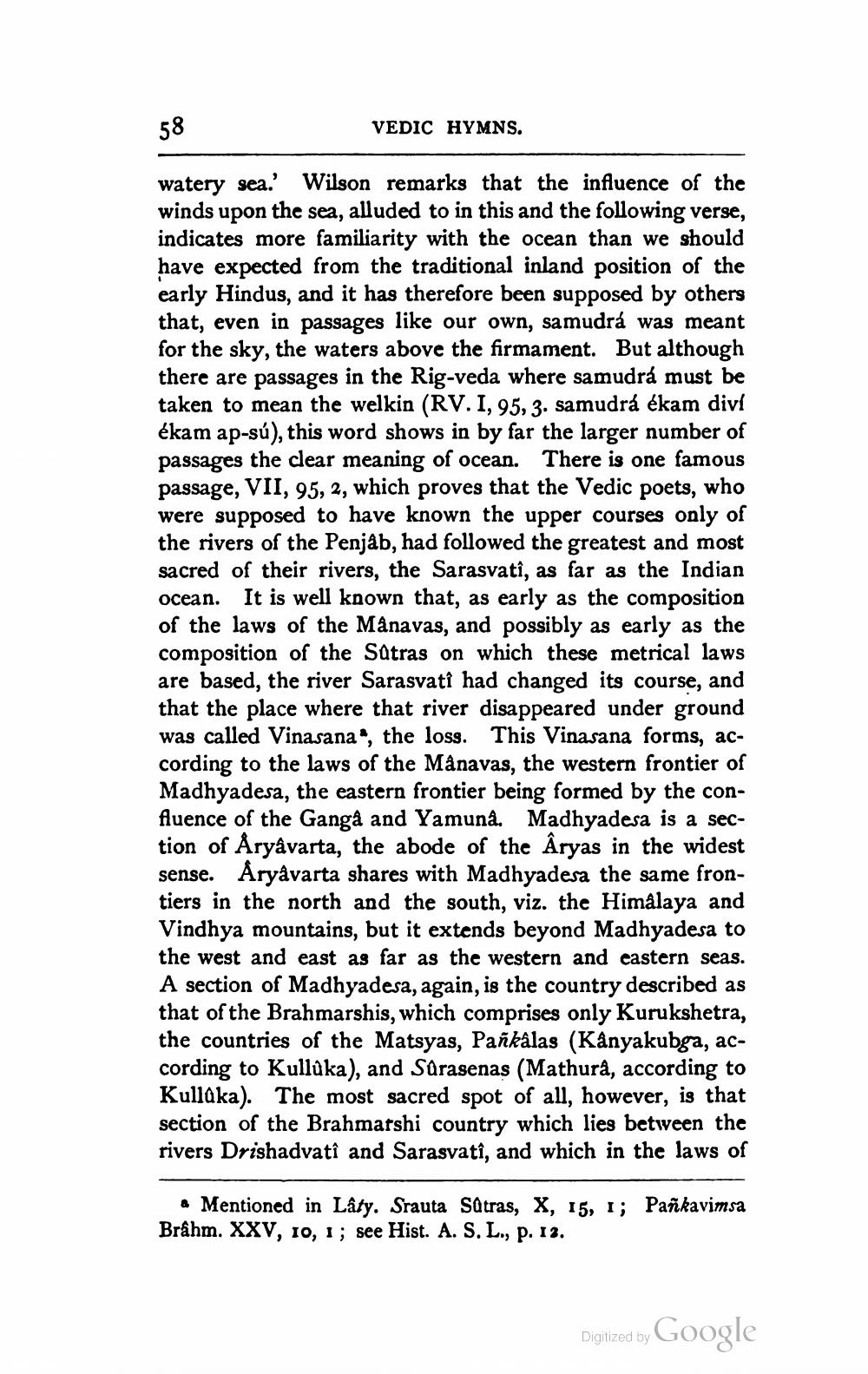________________
58
Wilson remarks that the influence of the
watery sea.' winds upon the sea, alluded to in this and the following verse, indicates more familiarity with the ocean than we should have expected from the traditional inland position of the early Hindus, and it has therefore been supposed by others that, even in passages like our own, samudrá was meant for the sky, the waters above the firmament. But although there are passages in the Rig-veda where samudrá must be taken to mean the welkin (RV. I, 95, 3. samudrá ékam diví ékam ap-sú), this word shows in by far the larger number of passages the clear meaning of ocean. There is one famous passage, VII, 95, 2, which proves that the Vedic poets, who were supposed to have known the upper courses only of the rivers of the Penjâb, had followed the greatest and most sacred of their rivers, the Sarasvati, as far as the Indian ocean. It is well known that, as early as the composition of the laws of the Mânavas, and possibly as early as the composition of the Sutras on which these metrical laws are based, the river Sarasvatî had changed its course, and that the place where that river disappeared under ground was called Vinasana, the loss. This Vinasana forms, according to the laws of the Mânavas, the western frontier of Madhyadesa, the eastern frontier being formed by the confluence of the Gangâ and Yamunâ. Madhyadesa is a section of Åryâvarta, the abode of the Aryas in the widest sense. Åryâvarta shares with Madhyadesa the same frontiers in the north and the south, viz. the Himalaya and Vindhya mountains, but it extends beyond Madhyadesa to the west and east as far as the western and eastern seas. A section of Madhyadesa, again, is the country described as that of the Brahmarshis, which comprises only Kurukshetra, the countries of the Matsyas, Pañkâlas (Kânyakubga, according to Kullûka), and Sûrasenas (Mathurâ, according to Kulluka). The most sacred spot of all, however, is that section of the Brahmarshi country which lies between the rivers Drishadvatî and Sarasvati, and which in the laws of
VEDIC HYMNS.
a Mentioned in Lâty. Srauta Sûtras, X, 15, 1; Pañkavimsa Brahm. XXV, 10, 1; see Hist. A. S. L., p. 12.
Digitized by Google




